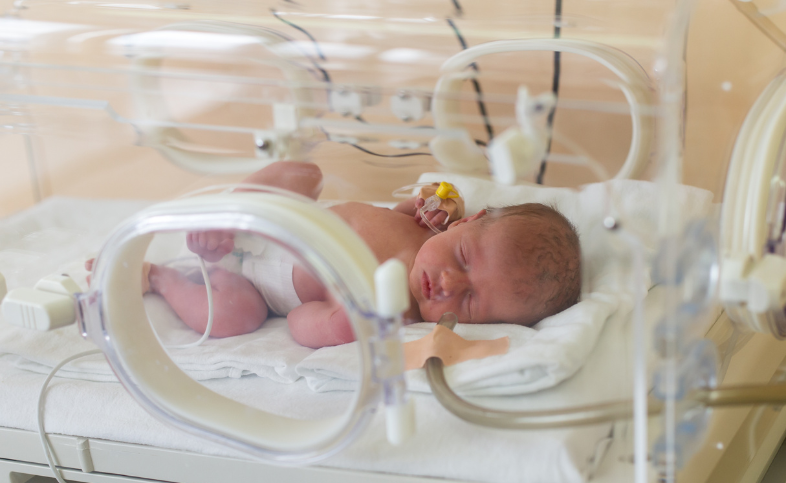Insight
This year’s World Patient Safety Day is dedicated to ensuring ‘every child has the right to safe, quality health care — from the very beginning’. In the East of England we have been supporting this statement by leading the delivery of a national Maternity Neonatal (MatNeo) programme to ensure that every newborn baby is recognised and managed early for deterioration using the NEWTT2 (Newborn Early Warning Track and Trigger).
This framework is designed for use in postnatal care settings including the delivery suite, postnatal ward and transitional care unit.
Intervention
The last two years the patient safety team at Health Innovation East have been working and supporting hospitals across the region to implement NEWTT2. NEWTT2 was co-designed by a working group set up by BAPM (British Association of Perinatal Medicine) and NHS England.
NEWTT2 is a framework and a chart that helps professional to identify, monitor and plan the management of at-risk newborn infants – newborns who have risk factors for clinical deterioration in the early days of life, for example had respiratory distress, early onset infections or jaundice within 24 hours of birth. The use of NEWTT2 aims to prevent morbidity, by taking into account parental and the multi-disciplinary team concerns such as the infant feeding poorly, not being responsive or having respiratory issues.
Impact
In the East of England there are 18 hospitals with maternity units and out of these, nine have implemented the NEWTT2 version. The remaining nine hospitals are in the process of implementing the NEWTT2 version by March 2026. We are supporting sites using NEWTT2 in paper or digital format. The benefits of using NEWTT2 is all staff working in maternity, caring for newborn infants, have the permission to escalate and respond to concerns through a structured approached.
NEWTT2 helps to identify babies in different at risk groups for example risks identified intrapartum (during the time from the onset of labour to the delivery of the baby and the placenta), risks associated with mode of delivery (elective pre-labour caesarean section, 39-weeks gestation), newborns born before arrival of a healthcare professional (BBA), and infants at risk of early onset infection.
Based on our MatNeo Optimisation data, programmes like “Optimisation of the Preterm Infant” and “NEWTT2” have helped ensure that 278 women in preterm labour (before 34 weeks of pregnancy) received antibiotics during labour to prevent early infection in their babies from Group B Strep (GBS), even if their waters hadn’t broken. This potentially means that 27 babies were born without group B strep and that six babies survived.
The implementation of the NEWTT2 framework and chart is enabling the this year’s World Patient Safety theme of “Patient safety from the start” – providing structure framework to support healthcare professional in the care of at-risk newborns.
Who was involved?
Who was involved?
All hospitals in the East of England region are involved in the implementation of NEWTT2.
- Bedfordshire Hospitals NHS Foundation – Bedford and Luton & Dunstable
- Cambridge University Hospital
- East & North Hertfordshire NHS Trust
- East Suffolk and North Essex NHS Foundation Trust- Colchester & Ipswich
- James Paget University Hospital
- Milton Keynes University Hospital
- Mid and South Essex NHS Foundation Trust – Basildon, Broomfield & Southend
- Norfolk & Norwich University Hospital
- Princess Alexandra Hospital NHS Trust
- Queen Elizabeth Hospital Kings Lynn NHS Foundation Trust
- West Hertfordshire Hospital
- West Suffolk Hospital
